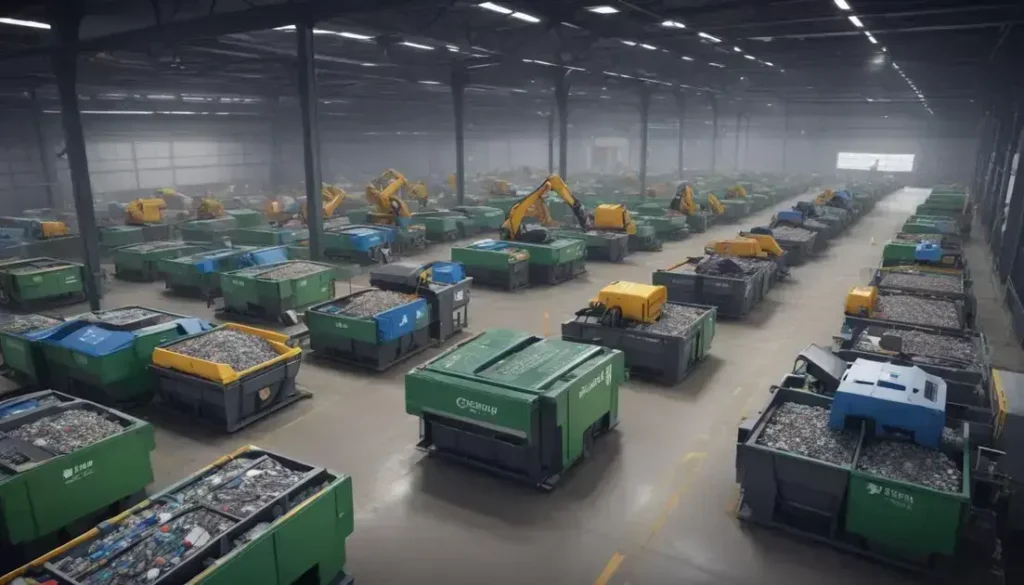Sustainability in retail is exemplified by IKEA’s shift to paper-based fitting bags, promoting eco-friendly practices while reducing plastic waste, which significantly impacts UK manufacturers and consumer demand.
Sustainability is becoming a top priority in the retail world, and IKEA’s new initiative is leading the charge to reduce plastic usage. What does this mean for UK businesses?
IKEA’s shift to paper-based fitting bags
IKEA’s initiative to transition to paper-based fitting bags marks a significant shift toward sustainability in the retail sector. This change aims to reduce the dependency on plastics, which have posed serious environmental challenges. The new bags are designed to be fully recyclable, offering a viable alternative that aligns with global sustainability goals.
Environmental Impact: By swapping plastic for paper, IKEA is not only addressing consumer concerns regarding waste but also committing to a circular economy. This shift signals to consumers that the company is serious about reducing its carbon footprint and improving its environmental practices.
The manufacturing process for these paper bags prioritises sustainability as well, with ink and materials sourced from certified sustainable forests. This approach ensures that the ecological balance is respected while meeting the demands of a growing eco-conscious consumer base.
Additionally, IKEA’s shift supports broader regulatory frameworks promoting sustainability within the UK. As the UK government increases pressure on businesses to adopt greener practices, IKEA’s plans position it as a leader among UK retailers. The anticipated positive reception from customers reinforces the idea that sustainable practices can also drive brand loyalty.
Implications for UK manufacturers
The shift towards paper-based fitting bags by companies like IKEA carries profound implications for UK manufacturers. As retail giants adopt sustainable practices, there is an increasing demand for manufacturing processes that align with these environmentally friendly initiatives.
Challenges and Opportunities: UK manufacturers must adapt their production lines to meet the new standards set by retailers. This shift may require investment in new machinery and training to handle biodegradable materials effectively. However, these changes also present opportunities for innovation and growth within the manufacturing sector.
Moreover, UK manufacturers that embrace sustainable practices can enhance their market positioning. As consumer preferences lean towards eco-friendly products, firms prioritising sustainability will likely attract more customers. This competitive advantage can lead to improved profitability.
Collaboration between manufacturers and retailers is also essential for streamlining the supply chain. By working together, they can develop best practices that maximise efficiency while minimising environmental impact. These partnerships can foster a culture of sustainability that benefits all stakeholders involved.
Ultimately, UK manufacturers must not only comply with changing regulations but also lead in the shift towards sustainability. This proactive approach will ensure they remain relevant and successful in an increasingly eco-conscious market.
Summing Up the Shift to Sustainability
In conclusion, IKEA’s move to paper-based fitting bags highlights a significant trend in the retail sector towards sustainability. This change not only reflects a growing consumer demand for eco-friendly practices but also sets a standard for UK manufacturers to follow.
As businesses adapt to new environmental regulations, the opportunity to innovate and thrive in a green economy is greater than ever. By prioritising sustainable practices, manufacturers can improve their market presence and build lasting relationships with eco-conscious consumers.
Ultimately, embracing sustainability is not just an obligation; it is a chance for growth and enhanced competitiveness. The future belongs to those who are willing to lead in this important shift.
Frequently Asked Questions
What are the benefits of using paper-based fitting bags?
Paper-based fitting bags are more environmentally friendly as they are recyclable and reduce plastic waste, aligning with global sustainability goals.
How will this shift impact UK manufacturers?
UK manufacturers will need to adapt their processes to produce sustainable bags, creating both challenges and opportunities for innovation and growth.
Can consumers influence sustainability practices in retailers?
Yes, consumer demand for eco-friendly products encourages retailers to adopt sustainable practices, influencing their business decisions.
What steps should manufacturers take to ensure compliance with new regulations?
Manufacturers should stay informed about regulations, invest in sustainable technologies, and consider collaboration with retailers to align their practices.
How can sustainable practices improve a company’s brand image?
Embracing sustainability can enhance a company’s reputation, attract eco-conscious consumers, and ultimately lead to increased customer loyalty.
Is transitioning to sustainable practices costly for manufacturers?
While there may be initial costs, long-term savings and benefits, such as improved efficiency and brand loyalty, can outweigh these expenses.


